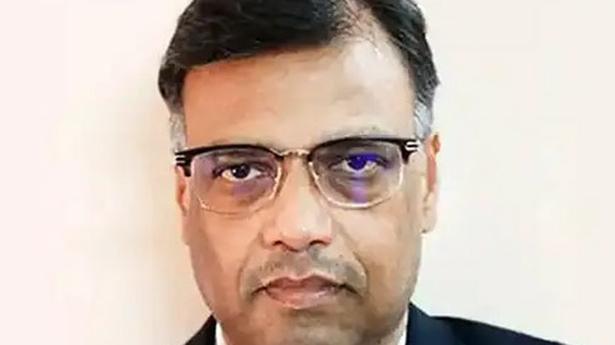RBI Deputy Governor pitches for data law to protect customers’ privacy
Corporates can use UPI data for developing products that can be specifically targeted at specific parts of the population, RBI Deputy Governor T. Rabi Sankar said
Corporates can use UPI data for developing products that can be specifically targeted at specific parts of the population, RBI Deputy Governor T. Rabi Sankar said
Reserve Bank of India Deputy Governor T. Rabi Sankar on Monday pressed for a law to protect customers’ privacy to ensure that monetisation of customer data is done in a responsible manner.
Last month, the government withdrew the Personal Data Protection Bill from Lok Sabha and IT Minister Ashwini Vaishnaw had said the Centre was hopeful of getting a new legislation passed by the next Budget Session of Parliament.
Budget Session usually starts by end of January.
Speaking at a seminar organised by economic think-tank NCAER, Mr. Sankar said India was extremely data-rich as digitalisation was growing at a rapid pace.
Also Read | What next on data protection?
“Data means money. Data can be monetised. Therefore, data is significant value to business but at the same time, we will have to have regulations in place, primarily have laws in place, followed by regulations in place, which ensures that customer data is not only safe, that customers privacy is not only protected but the monetisation of customer data is done in a responsible manner,” he said.
Further, he said that monetisation of data should be done with “some level” of consent.
Mentioning that many large corporates were interested in accessing UPI data, Mr. Sankar said, “Something like the data protection bill needs to be in place for large-scale usage of data… we will have to check then what the conditions of data sharing are.”
Corporates can use Unified Payments Interface (UPI) data for developing products that can be specifically targeted at specific parts of the population, he said.
The now withdrawn Personal Data Protection Bill had proposed restrictions on the use of personal data without the explicit consent of citizens. Among others, it had mooted setting up of a Data Protection Authority.
Talking about some of the challenges in the growth of digital payment, Mr. Sankar mentioned about connectivity, minimising risk of fraud and data theft.
About digital financial inclusion, he said the number of bank accounts in India had gone up by a phenomenal 76% over the last 10 years, which was remarkable.
Of these, 61% of the account holders made digital payments from their accounts, going up from 35% in 2014.
This is a clear indicator of the digital growth that we are making in India, he said, adding there was a notable rise in daily digital transactions, which have gone up from 40 million in 2011 to 290 million in August 2022.
A majority of these transactions were made through the UPI.
He also said that the FINDEX Report by the World Bank indicated that the gender gap in bank account ownerships has been completely bridged but expressed concern that there was a 17% gender gap in the use of digital payments that still needs to be bridged.
RBI was trying to address this and various other challenges as it has a vision for devising a national strategy for achieving universal financial inclusion in the country, he said.
According to him, RBI has sought to provide a regulatory framework that creates and reinforces the enablers adding that inter-operability, security, cost efficiency and digital literacy were its building blocks.
For all the latest business News Click Here

